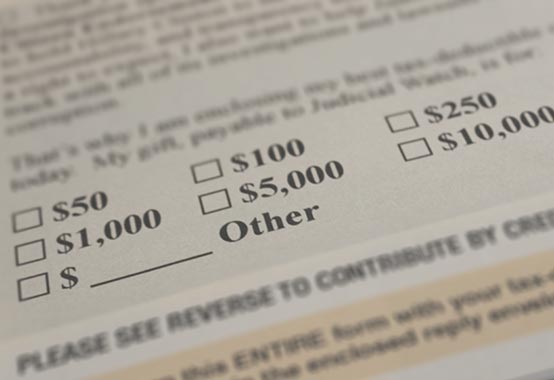A New Threat to Freedom of Association

In 1956, the Alabama Attorney General sought a court order seeking to stop a politically active group from “conducting further activities within, and to oust it from, the State.” Among other things, the group had recruited members and solicited contributions within Alabama, had provided financial and legal support to students seeking admission at public universities, and had supported political boycotts. Throughout the litigation, the Attorney General demanded that this politically active group turn over the names and addresses of its members to the government. The group refused. And the case made its way up to the United States Supreme Court.
A unanimous Supreme Court struck down the State of Alabama’s attempt to compel the National Association for the Advancement of Colored People (NAACP) to turn over its member list to the government. In so doing, the Court compared the “[c]ompelled disclosure of membership in an organization engaged in advocacy of particular beliefs” to a “requirement that adherents of particular religious faiths and political parties wear identifying arm-bands.” Recognizing the “vital relationship between freedom to associate and privacy in one’s associations,” the Court reiterated a fundamental principle under the First Amendment—the right to privately associate and speak freely without the fear of harassment or retaliation.
Unfortunately, the government reporting activists are at it again. Throughout the country, at all levels of government, there are efforts to force donors to private nonprofit organizations to turn their names, addresses, and contributions amounts over the government in order for those groups to engage in political dialogue.
Couched as transparency measures, these “dark money” disclosure mandates are in actuality a concerted effort to stifle speech with which disclosure advocates disagree.
The phrase “dark money,” an inflammatory misnomer, generally refers to funds spent on political activities by nonprofit organizations, businesses, unions, and individuals who are not required under federal law to disclose the identities of their donors or supporters.
Depending on where one draws the line, dark money can refer to donations made to the American Civil Liberties Union (“ACLU”) or to a local church or neighborhood soup kitchen.
Indeed, government disclosure mandates can be so broad that they sweep in the speech activities of the nearly one million private charities organized under 501(c)(3) of the federal tax code. This includes schools, churches, hospitals, art centers, public radio stations, research and education foundations, legal aid clinics, among many others. These nonprofit groups range ideologically from the Cato Institute to the Center for American Progress.
So, when disclosure advocates talk about “dark money” what they are really talking about is the government-mandated disclosure of the names, addresses, and contributions amounts of hundreds of thousands of donors to nonprofit organizations that engage in political dialogue.
These mandates are troubling for a number of reasons.
First, mandatory government reporting prevents public discourse from focusing on the message, instead focusing it on the messenger. Throughout history, in political discussion, literature, the arts, news reporting, among many other fields, privacy has been essential for unfettered dialogue.
Indeed, the United States Constitution was defended primarily through a series of anonymous articles called the Federalist Papers because the authors—Alexander Hamilton, James Madison, and John Jay—believed that regional rivalries and the personalities involved would have detracted from an objective assessment of their arguments. It is not a stretch to say that our Constitution may never have been ratified had it not been for private political association and speech.
Second, mandatory government reporting allows for retaliation against speakers by those who disagree, particularly when speaking truth to power. From the Civil Rights era to the debate over same-sex marriage, political actors throughout history have sought the identities of those with whom they disagree in order to threaten, harass, and intimidate them into silence.
Finally, donor disclosure laws are often so complex and confusing that no one knows what political speech is permitted and what speech is prohibited. As a result, rather than facing prosecution or penalty, or spending thousands of dollars to hire campaign finance lawyers, people decline to participate, thus chilling free speech.
Every American has the right to support the causes we believe in without the fear of harassment and retaliation. Disclosure mandates, as we are seeing them today, undermine this basic freedom, and are either intentionally designed to silence speech or are so vague and overbroad that no one knows what speech is allowed.
To the extent these mandates reach the activities of nonprofit organizations, they are truly disturbing. What do these mandates mean in practice? A donation to the National Rifle Association or the Sierra Club becomes a public record. Member dues to the ACLU or the Chamber of Commerce would be reported to the government and disclosed to the public. Under these proposals, how many donations would be withheld? How much speech would be silenced?
Sixty years ago the Supreme Court rebuffed Alabama’s efforts to compel disclosure of private political associations. The values recognized in that case, and throughout our history, are as relevant today as they were then. And efforts to control what is said and by whom should be opposed just as strongly.
Jon Riches is the national litigation director and general counsel at the Goldwater Institute.
Comments